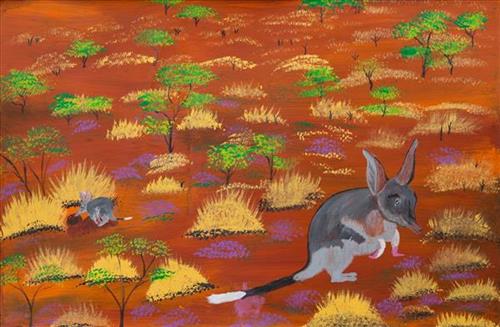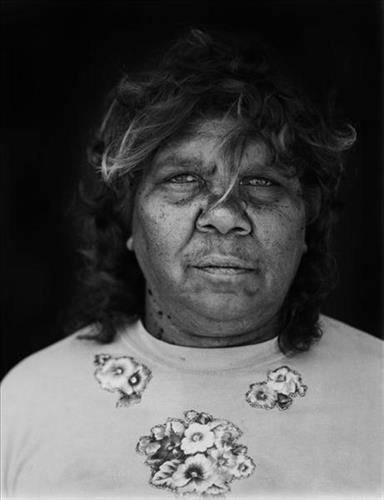111582246290
Bilby
Mankarr (Greater Bilby) is a type of desert-dwelling omnivore, found in a range of habitats from rocky soils, shrublands, woodlands and spinifex regions. Its fur is usually grey or white, and has a long, sharp nose and long pinkish ears. At the time of European colonisation of Australia, there were two species. The lesser bilby became extinct in the 1950s, while the greater bilby has survived, it remains a threatened species.
KJ program manage the conservation of the natural and cultural assets on Martu country through the employment of Martu as Indigenous rangers. KJ rangers work to build knowledge on and protect the many important species that occur on their country, including the Mankarr, the wiminyji and the mulyamiji (great desert skink).




